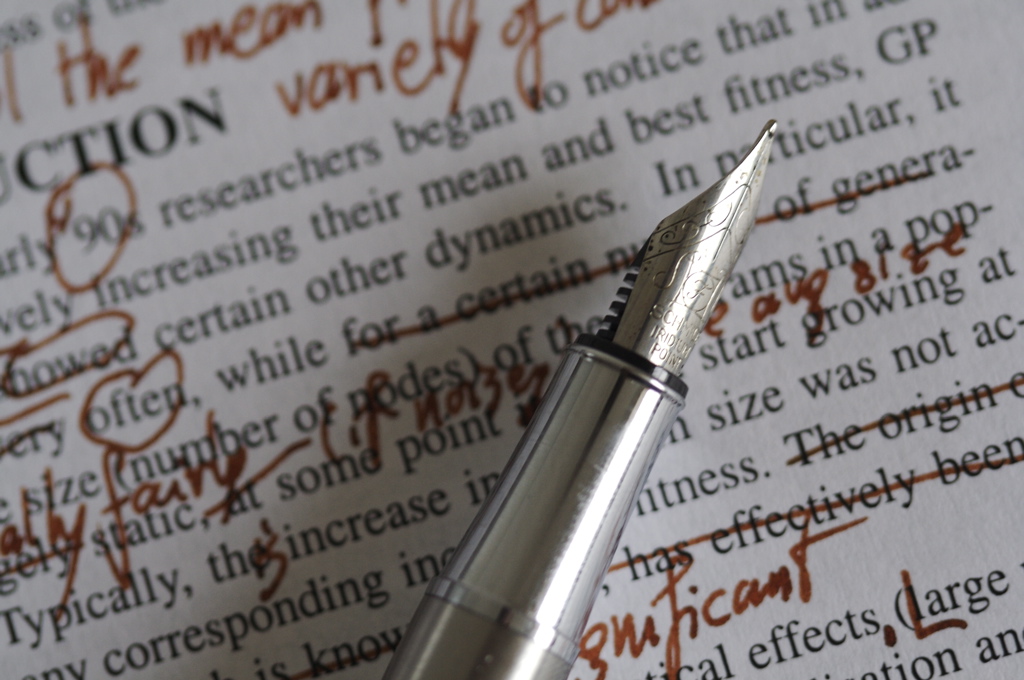I attended the
DFW Writers' Conference over the weekend of April 23-24. Having never gone to a writing conference (or a gathering of more than ten writers at a time), I was nervous. Not only did I survive my foray into the world of other writers, I came out with a number of new friends, a wealth of new knowledge, and an addiction to surrounding myself with the people of "my tribe". Here are a few things I wish I had known in advance and which I plan to remember for the future.
Appearance

Dressing up for events terrifies me. I have lousy fashion sense and I feel anxious that others are judging my by what I'm wearing. While I'm sure that happens way less often than the voices in my head suggest, it is true that your clothes are a part of your first impression, and events like this are all about the first impression.
* Aim for business casual with a twist of you.
You want to look professional and competent (especially if you're talking to a potential publisher or agent), but you also want to showcase the best of what makes you unique.
* Protect your feet.
You will spend a lot of your time on your feet in line, traveling from one session to another, or schmoozing at the cocktail hour. Wear something super comfortable and functional for your daytime hours. Save the fancy dress shoes for the evening events.
* Be pleasantly memorable.
One of my favorite presenters, Tex Thompson (@tex_maam on Twitter) always wore a red shirt and cowboy hat. A few attendees (myself included) had brightly colored hair. Standing out from the crowd in a small way makes it easier for everyone - new friends, potential agents, etc - to remember you.
Note: I added the word pleasantly for a good reason. You do NOT want people to think "Oh, there's that gimmicky, obnoxious guy" and head the other way when they see you coming. You also don't want them to remember you as the person with the really nasty breath or the overpowering body odor. Stand out in a positive way.
Socializing

This is key. You must interact with the other attendees. Yes, I know you're an introvert. Yes, I know you're afraid you'll say something dumb. Nevertheless, conferences are about making the kinds of connections that will open doors for you in the future.
* Introduce yourself to new people.
Walk up, extend your hand, shake firmly, and tell them your name. It sounds so simple, but it's the hardest thing for me to do. Fortunately, the folks at DFWCon were some of the friendliest, most welcoming people I've met.
Watch for someone who looks as unsure as you feel. That person knows how you feel and is probably trying to work up the nerve to talk to someone themselves. You can practice together!
Have a follow-up question in mind. I heard "So, what do you write?" dozens of times over the weekend. Nothing pulls a writer out of their shell like asking them about their relationship with words. Other good follow up questions: "Read any good books lately?" and "Have you been to many conferences?"
* Utilize those business cards.
Ask people for their business cards. You will use these later (see "After the Conference") to solidify your new connections. Bring your own cards and keep some on you at all times. Your card should mention your name, email and social media information. You may want to include info about your genre or special accolades as well. You do not necessarily need your phone or address on these cards.
* Relax. (But not too much.)
I observed many people (myself included) using alcohol as a social lubricant. If a drink helps you relax and act like yourself, go for it. Just remember that you never know when you'll bump into someone important or influential. Keep your wits about you!
The Pros
It is possible that you will rub elbows with influential people. Conferences are where authors, agents, editors, and publishers network, too. Some of them might even be there looking for exactly the kind of writing you have to offer.
* Pros are human beings just like you and me.
Although they're much more familiar with the conference circuit and have established relationships with the people they see regularly, agents and editors are just people. They're unlikely to bite or shout. They're well-versed in talking to nervous authors. Don't be intimidated.
* Wait for them to ask.
You should ask for business cards from other writers and offer yours in return, but it's best to wait for agents to ask. The same goes for sample pages or manuscripts. You don't need to carry your stories or novel with you. If you find someone who is interested in seeing your work, they will let you know how to get it to them. That said, if you plan to participate in pitch sessions, you might want to have your first chapters available.
* Know when to back off.
Be cool. Agents and editors are constantly asked for validation and attention. Make sure you treat them like actual people instead of a means to an end. Cultivate friendly relationships with everyone you meet and the pros are likely to hear about it.
Be appropriate. If it's obvious that someone needs some personal space -- they're on the phone, in the bathroom, or tucked away in a quiet corner with their eyes closed -- leave them alone. No matter how awesome your writing is, they're not going to want to work with you if you piss them off.
Have a Plan

It is not physically, emotionally or temporally possible to experience everything at a conference. Having a tentative schedule planned out can help you use your time and energy effectively.
* Be familiar with the offerings/format of the conference.
Vendor halls. Lectures. Interactive classes. Pitch sessions. Keynote speeches. Open mic sessions. What are you looking for at this time? What will help you grow most as a writer? Be sure you are familiar with what is available at your conference.
Read about the classes being offered. If you know ahead of time which ones you are most interested in seeing and know where they are located, you will save yourself time and anxiety.
* Find a map of the venue.
Although the venue for DFWCon was very manageable, it seems that it's constantly growing. There are many conferences that take up multiple floors of large halls. Knowing the basic layout of the land -- especially exits and bathrooms -- makes it easier to get where you need to be in a timely manner.
* Stay flexible.
Be prepared to veer from your plan. Sometimes sessions get rearranged at the last minute. Sometimes you discover a new favorite speaker (Hint: take ANY session hosted by
Tex Thompson, AKA
@Tex_maam!) or realize a particular presenter just isn't right for you. It's okay to change things up.
Self-care
You cannot enjoy the conference if you are too tired, stressed or hung-over after the pre-conference mixer. Take care of your body and your mind so that you can maximize your experience.
* Sleep.
It will be tempting to stay up until all hours chatting with friends, rehearsing your pitch, or reading the amazing book of poetry you just discovered. Remember, classes generally start early in the morning and coffee can only do so much. Get some sleep at night and maybe even schedule in a brief nap or quiet time so you are refreshed for the evening receptions.
* Eat. Hydrate.
Stop talking long enough to eat something, preferably something healthy. Your body and brain will thank you. DFWCon made this easy by provided excellent lunches both days.
Drink water. Yes, you can mainline coffee or tea or soda to keep your energy level up, but make sure you're drinking some good, old-fashioned H2O as well.
* Take a break.
You may find yourself overwhelmed by the noise and excitement. Find a quiet corner. Take a few deep breaths. Close your eyes and go to your happy place for a minute. Check Facebook for pictures of your nephew or tweet about how much fun you're having (don't forget the #hashtag!). If necessary, you can even head back to your hotel room for a bit. The conference will still be there when you get back.
Get Involved
One of the hardest things about being the "new kid" at a conference is feeling as though you don't belong. Overcome this by making sure you do belong!
* Participate in associated contests.
DFWCon sponsors DL Hammons' (
@DL_H) writing contest,
Write Club, during the weeks leading up to the conference. They also had a
teen writing track that included its own contest. These activities provide exposure and give writers a chance to interact before meeting face to face. (Read about my experience with Write Club 2016
here!)
* Join in activities.
The Pre-conference mixer hosted by Kimmie Easley (
@KimmieAnnWrites) and Sarah Bale (
@Sarah_OKC) was great for meeting people. I felt much more at ease during the first day of the conference because there were already friendly faces in the crowd. Interactive sessions like the
Heroes and Villians sessions or panel discussions encouraged teamwork and communication. Pitch sessions with agents gave one-on-one time with people who can take your writing to the next level. Sponsored meals are a chance to network and may include games like the Gong Show, during which a panel of agents hear first pages submitted anonymously by participants and give their feedback on what worked and what didn't (GONG!) Step outside your comfort zone and force yourself to take part in at least a few of these terrific opportunities.
* Hang out.
Evening is when you get to grow those new relationships. Once you've moved beyond the "so what do you write?" stage, there are plenty of things to do with your new friends. Gather a group to check out a local bar or restaurant. Meet up in the hotel lobby to continue that in-depth conversation. Or maybe you can channel some of the inspiration of the day to host a speed writing session in a nearby coffee shop.
After the Conference

Hopefully, you will have a bunch of new information to process and several new contacts to cultivate. Maybe you even connected with an agent who wants to see your work. Take a day to rest and get yourself back into your normal routine, but don't forget your post-conference tasks!
* Tweet, email or facebook those new friends.
You're not going to be lifetime BFFs with everyone you talk to at the conference, but it's good to establish a line of communication. You never know where your next opportunity is hiding. Let your new friends know you remember them and they'll be more likely to remember you.
* Follow through on any commitments you made.
With hard work and a bit of luck, you may have a potential agent waiting to see your first chapters. Or you may have agreed to exchange beta reading with a new friend. Whatever you promised, make sure you get it done promptly. Bolster your amazing writing by developing a reputation for timeliness and professionalism.
* Apply all that new knowledge.
Get to work! Take all the things you've learned and make them a part of your writing! If you're like me, you'll leave the conference feeling inspired and motivated. Put all that energy to good use.
***
Hopefully, that answers some of the questions you might have about attending your first DFW Writers Conference! If you have other questions, ask in the comments and if I don't know the answer, I'll try to find someone who does.




















